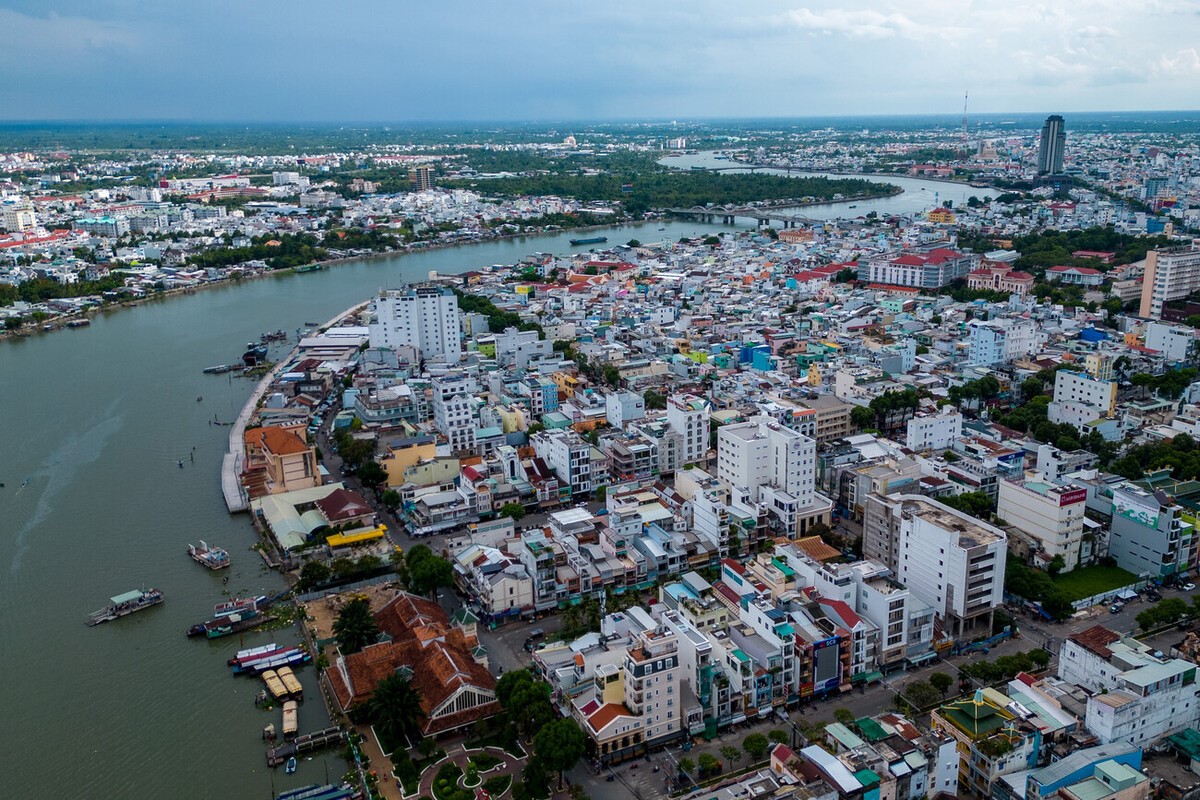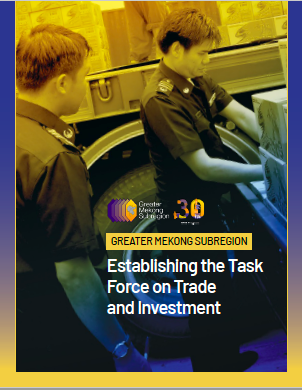Trade and Investments
The scoping study, “Enhancing Collaboration in Trade and Investment Under the GMS Program” recommended the establishment of a GMS Trade and Investment Task Force to implement and deliver various short and long-term interventions and coordinate with other working groups and forums of the GMS Program.
Learn More
Establishing the Task Force on Trade and Investment
The Greater Mekong Subregion (GMS) Economic Cooperation Program Strategic Framework 2030 (GMS 2030) mandates the GMS Program to continue its efforts to develop trade and investment facilitation in the subregion and beyond. Specifically, GMS 2030 states that “new sector working groups or taskforces will be formed to support the critical areas such as trade and investment facilitation.” This mandate was reconfirmed by the GMS leaders at the 7th Summit of Leaders held on 9 September 2021.
Objectives
Act as a strategic advisory body
in prioritizing recommendations for enhanced cooperation in economic recovery and in revitalizing economic performance in the GMS.
Collaborate with a broad range of stakeholders
such as related working groups, forums, and action programs to implement the agreements with and recommendations of the Task Force.
Conduct a midterm review of the work of the Task Force
after 12 months to take stock of the ongoing progress and areas for improvement.
Review and present recommendations to GMS senior officials and/or ministers
on the necessity of establishing a GMS Trade and Investment Working Group upon completion of the implementation of the Task Force work program in two years.
Propose other relevant recommendations
to GMS ministers and leaders.
Proposed Pillars
The Task Force will work with economic agencies to assess and develop a clear action plan for the immediate term based on the recommendations of the scoping study. The pillars of work for this action plan may include (i) digitalization, (ii) improving the business climate, and (iii) capacity-building support to maximize free trade agreements (FTAs).
Click on the images below to know more

Digitalization
Digitalization is a key aspect of the economy that will continue to accelerate in the near future. Hence, it is crucial for GMS countries to keep pace with digital developments and bridge the digital divide. To do this, the Task Force will focus on how to equip local businesses with digital skills to remain competitive, and on how to increase investments in digital infrastructure to bolster digital connectivity.

Diversifying trade and investment
The Task Force will work with economic agencies to assess and identify opportunities for diversifying trade and investments and collaborating with other countries.

Attracting foreign investment
The Task Force will work to increase regional coordination among investment promotion agencies from the GMS countries, including chambers of commerce, to develop information dissemination campaigns, enable networking, and improve the ease of doing business.

Developing micro, small, and medium-sized enterprises
The Task Force will support the development of micro, small, and medium-sized enterprises (MSMEs) through capacity building, training, and policy.

Capacity Building to Maximize Free Trade Agreements
The Task Force will help address the capacity gaps within the GMS countries so that the subregion can maximize the benefits of FTAs and meet implementation timelines.
Activities
- Identify priority recommendations and interventions for implementation, with a supporting work plan or timeline.
- Undertake multi-stakeholder consultations to tailor recommendations to each GMS members’ circumstance.
- Identify key deliverables, road maps, and desired outcomes.
- Identify and coordinate resources required and, if necessary, conduct capacity needs assessment.
- Facilitate the implementation of priority recommendations and interventions according to the agreed work plan, in close coordination with existing GMS working groups.


